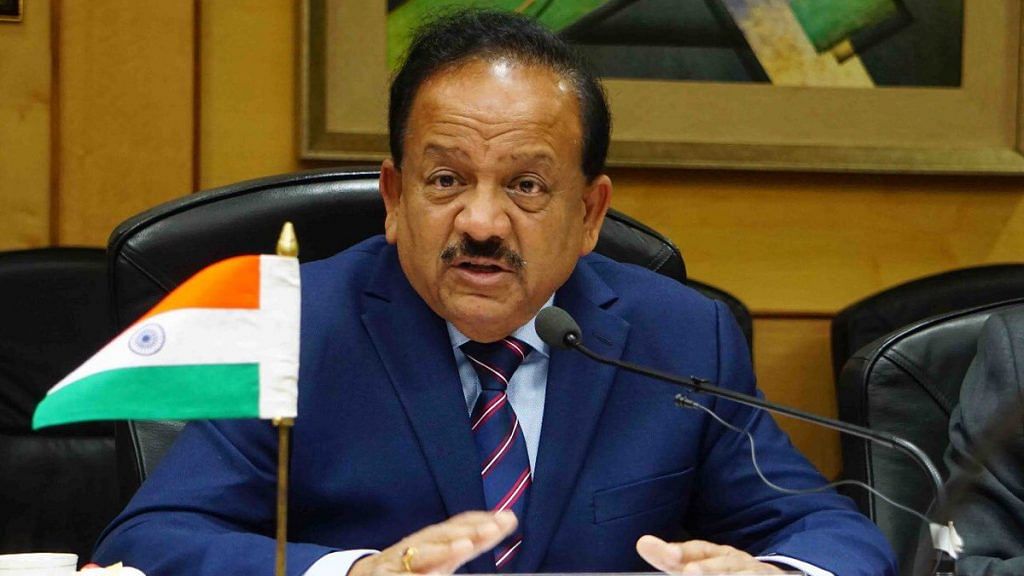New Delhi: Union Science & Technology Minister Harsh Vardhan has asked the Council of Scientific and Industrial Research (CSIR) labs and institutes to accelerate their research and development activities to fight the novel coronavirus pandemic.
At a video conference with the heads of different CSIR institutions Sunday, the minister, who also holds the health portfolio, reminded them that everything needs to be done keeping in mind the shortage of time.
“If you deliver weapons after the war is over, it may be too late,” Harsh Vardhan told the directors even as he lauded the contributions of CSIR so far.
Vardhan said all the facets of developing new technologies such as scientific validations, industry partnerships, and scaling up manufacturing, need to be adopted simultaneously in these unprecedented times.
During the meeting, the minister reviewed the steps undertaken by CSIR and its constituent 38 labs towards the mitigation of coronavirus outbreak in the country.
Also read: UV light booth, nasal gel & other innovations India’s working on to battle Covid-19
What the minister said
Harsh Vardhan also noted some of the encouraging developments at CSIR institutes across the country.
These include genetic sequencing of the novel coronavirus samples being carried out at Centre for Cellular & Molecular Biology (Hyderabad), rapid- and cheap paper-based diagnostic tests developed at Institute of Genomics and Integrative Biology (New Delhi), and the initiation of plasma-based therapy for coronavirus patients by Indian Institute of Chemical Biology (Kolkata).
Genetic sequencing will help track how the virus arrived in the country, and see if its virulence has changed over the past three months, the minister said. During the last leg of India’s polio eradication movement, genetic sequencing played an important role in identifying how the virus was infecting certain communities, he said.
He also appreciated how many CSIR labs are helping the frontline health workers, police and other citizens by preparing and distributing safety items and devices in large quantities.
The minister added the country has high expectations from its scientific community and he is certain that they will rise up and deliver in this time of need.
During the meeting, CSIR director general Shekhar C. Mande said the body has set up a core strategy group with five verticals to carry out Covid-19 related activities – digital and molecular surveillance, rapid and economical diagnostics, new drugs/repurposing of drugs and associated production processes, hospital assistive devices and PPEs, and supply chain and logistics support systems.
Also read: India will use rapid antibody tests in Covid clusters even after WHO advised against it
